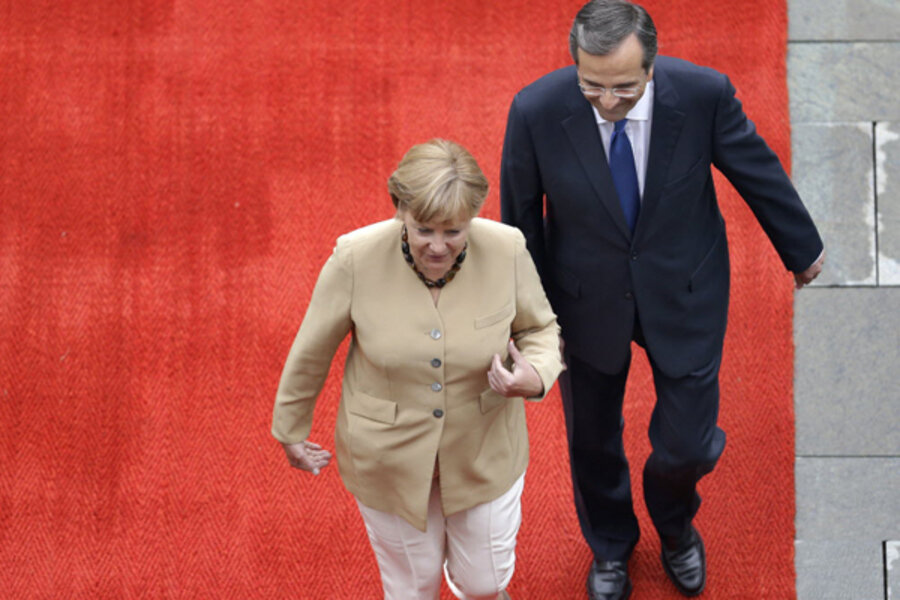Germany says 'time is money,' and additonal funds for Greece aren't an option
Loading...
| Berlin
Germany's economy minister has rejected calls for Greece to get more time to implement economic reforms, saying in an interview Sunday that Athens needs to respect the bailout deal reached with its international creditors.
Philipp Roesler's comments to ZDF public television come after a visit by Greece's prime minister to Berlin on Friday, during which Antonis Samaras told German Chancellor Angela Merkel that his country needs "time to breathe" before it can make all the budget cuts and reforms demanded as part of its €240 billion ($300 billion) bailout packages.
"What the Greeks have asked for, half a year or two years, that's not doable," said Roesler, who is also the vice chancellor in Angela Merkel's coalition government.
He added that "time is always money" and all parties had agreed that additional funds for Greece weren't up for debate.
Roesler, the leader of Germany's pro-business Free Democratic Party, has long taken a hard line on Greece. Last month, he caused an outcry in Greece by suggesting the idea of the country leaving the 17-nation eurozone had "lost its horror."
Those comments appeared to put him at odds with Merkel, who has always insisted that Greece should remain in the euro.
But his latest views on the need for Greece to stick to the agreed time plan for reforms were echoed by German Finance Minister Wolfgang Schaeuble, who told a newspaper in comments published Sunday that "more time generally means more money and that quickly means a new (bailout) program."
The question of how to avert a Greek debt default, which could spark a chain reaction among other ailing European economies, has preoccupied EU leaders as they return from their traditional summer break.
French President Francois Hollande urged Greece on Saturday to do more to show its commitment to reforms, and offered the country no immediate hope for relief from its current regime of painful austerity measures. Like Merkel, Hollande said further decisions on Greece need to wait for a report next month by the country's debt inspectors.
Meanwhile, the German chancellor is reported to be pushing for EU leaders to begin work on a treaty that would see deeper political integration at a time when the eurozone crisis is pushing member states toward greater economic inter-dependence.
Merkel has long said closer political integration is needed at a time when the European project threatens to unravel because of the strain caused by government debt crises in Spain, Italy, Portugal and Greece.
Merkel's office didn't immediately respond to requests for comment Sunday on the report by respected German weekly Der Spiegel, which claimed that German diplomats have indicated she wants European leaders to start working on a new legal framework for the EU at a summit in December.
Der Spiegel said the new treaty could include provisions such as giving the European Court of Justice in Luxembourg power to monitor the budgets of member states and punish those who exceed deficit limits.







